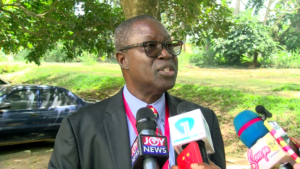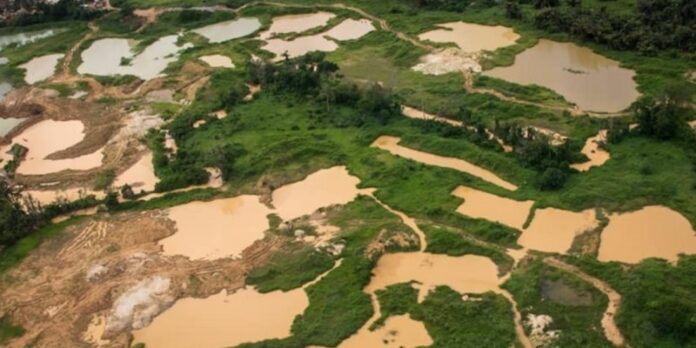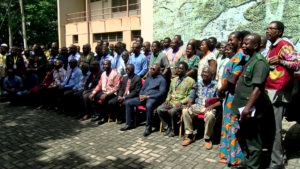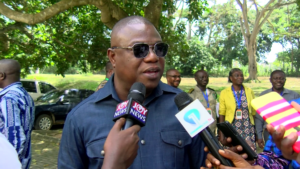The Forestry Commission says over 800 illegal miners have been arrested since 2023, through the joint security taskforce to clamp down on the menace that is wreaking havoc in the country’s forest reserves and water bodies.
Chief Executive Officer of the Commission, John Allotey, is reiterating the government’s commitment to fighting illegal mining activities, claiming the renewed clamp down has reduced the illegal mining activities.
But the Ghana Institute of Foresters is distraught over the government’s neglect of their contributions to totally eradicating the activities of the illegal miners.
Across several forest reserves in Ghana, illegal mining pits are dotted on large hectares of land. Over 2.5 million hectares of forest cover have been lost and water bodies destroyed.
The government renewed its efforts to clamp down on the illegal mining activities along the country’s riverbanks and forest reserves through a military task force involving officers of the Forestry Commission.
Speaking at the 27th annual general meeting of the Ghana Institute of Foresters, Chief Executive of the Forestry Commission, John Allotey explained over 800 illegal miners have been apprehended since 2023.
“Since 2023, the forest service division with support from the Rapid response team have been able to step up law enforcement and arrested over 800 illegal miners, demolished several illegal structures constructed within forest reserves by illegal miners. Confiscated some vehicle through the courts,” he said.
The general meeting brought together stakeholders in the forestry industry, including the academia and researchers, to deliberate on its theme “Mining in Forest Reserves in Ghana: New Developments and the Way Forward”.
There are several calls for a halt on all the mining activities to save the country’s environment.
Mr. Allotey explains some of the possible ways to adopt to fight menace.
“There are two options, to ban all forms of mining in the forest reserves and banning alluvial mining but leaving out limited hard-rock mining in exception cases where socioeconomic benefits are huge. I believe the second is more practical. It is the option that recognizes the socioeconomic importance of responsible mining while ensuring good environmental stewardship,” he said.

Meanwhile, the Ghana Institute of Foresters wants a collaborative approach and more negotiations with the various stakeholders to contain the devastation.
“Look at the destruction that’s being done. People go and there being given licenses to mine. After mining who cares about reafforestation. We are unhappy the government has failed to heed our opinions and other stakeholders. We could proffer some many solutions to end the menace,” President of Ghana Institute of Foresters, Dr Abukari Atta Nantongmah said.



